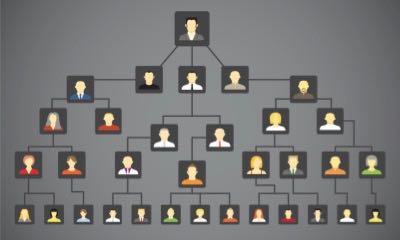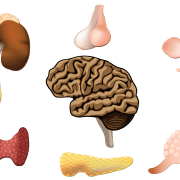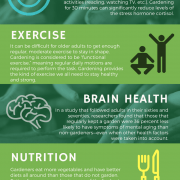Knowing Your Family Health History Shapes Your Future
Blame your parents for your hairline. A lack of dimples? Your parents’ fault. The way your ear lobes connect to your head (or don’t) are also the responsibility of your parents. And, of course, there’s more you can’t see in the mirror. Your family health history is embedded in you because that’s what your parents passed down. It encompasses the health issues of your blood relatives. The shared genes, and, in some cases, environment and habits, make health outcomes similar throughout a family.
And this history provides insights you and your doctor can use to help you maintain your health. The knowledge you acquire creates potential roadmaps for your future. That’s the biggest reason your family health history is more important than the few lines on a form at the doctor’s office.
So, don’t wait for your next appointment to think about your family health history. The guide below will help you start gathering this important information for your health.
Guide to Gathering Your Family Health History
Obviously, this part could take some time. And, depending on how you feel about talking to your family, some energy. But don’t worry. This step-by-step guide will help you get through the process as painlessly as possible.
- Decide who you need to talk to: The general rule is three generations of blood-related family (on your mother’s and father’s side) make up a complete history. That includes:
-
- Grandparents
- Parents
- Aunts and uncles
- Siblings
- First Cousins
- Your children
That seems like a lot of people whose health history you need. But remember, you only need to do this for blood relatives. No step-siblings or stepparents. Nobody who married into your family. Hopefully that simplifies the process and trims the number of potentially intense conversations you need to have.
- Focus on the information you need most: You don’t need to talk to your grandma about how much she weighed at 25. And put the tape measure away because you don’t need to check your sister’s height.
The more you know, the better. But you don’t need to collect spreadsheets—plural—of data. Don’t track your family’s personal measurables (height, weight, speed) like a sports team sifting through potential players. Focus on these questions to collect the most critical information:
-
- What significant medical issues have they faced? (This includes diseases and even major injuries.)
- At what age did these issues start? (Knowing when they were diagnosed with an issue tells a lot about what you can expect and whether something is hereditary.)
- For relatives who have passed, what was the cause of death?
- What’s your family’s ethnic background? (Some issues are specific to an ethnicity or carry increased risks in certain populations.)
- How has the environment they lived in impacted their health?
- What mental health issues have they dealt with? (This includes everything from addiction to anxiety and depression.)
- Is there a history of complications with pregnancy? If so, what were they?
- What lifestyle habits have they participated in? (Heavy drinking, smoking, drug use, or healthy habits, like marathon running, can shed some light.)
- Decide the best place or way to talk to your family members. Use family events, like reunions, to talk about health history or set up times to call or email about it in the future. Talking face-to-face is always a good option. But sometimes the impersonal nature of email provides enough removal to allow honest conversation.
- Approach each conversation by explaining why you want this information. There’s a reason why health privacy laws exist. Discussing health issues is delicate and intensely private. Not everybody wants people to know they dealt with a medical issue or experienced mental-health problems. Letting your family members know how important it is to know this information is a good start.
If you can get everybody onboard, it’s also possible to share your collected information with your family. That way you aren’t just doing the family health history for you, but completing some of the work for others, too. But don’t share any information with others unless you have explicit permission to do so.
- Be a good, respectful listener. Make the conversations as simple or expansive as the family member wants. Sometimes that means asking to-the-point questions and getting simple answers. Other times you might have a longer discussion where your relative opens up a lot. Listen. Be supportive. And thank them for their time after you’ve wrapped up the conversation.
- Keep an easily updated electronic record. There are forms and tools to help simplify the process of gathering and tracking your family health history. Seek them out and use them. Most are free. And they offer a fill-in-the-blanks approach that makes it easy. Once you have a document of your own, remember to update it regularly.
- Don’t get discouraged by obstacles. This process, like life, isn’t likely to be perfectly smooth. But there are usually still ways to get what you need. Here’s some common obstacles and how to get around them:
-
- Deceased relatives: If nobody in your family knows the health history of someone who has passed, public records can help. Death certificates are typically available to the public. Obituaries can shed light on the circumstances of a person’s death. Some family medical records could be acquired, too.
- Adoption: If the adoption is open and the person is in contact with the biological parents, a conversation will suffice. But if that’s not the case, adoption records or the adoption agency might be the best resources available.
- Estrangement: Use the family members you have connection with to reach out to those who you don’t. If your doctor will send out questionnaires, that is an option to explore. And turning to available records is another way to get what you need.
Remind Yourself Why Health Knowledge is Power
Following the steps above will guide your process. But knowing what to do and having the motivation to do it are two very different things.
Sometimes it’s hard to get in contact. Or your relatives may not be as forthcoming as you’d like. During those times, give yourself a reminder of why you’re collecting the family health history.
It all comes down to building the biggest base of knowledge possible. The bigger the data set, the better the predictive capabilities. But even the most extensive health history will not tell your future.
It’s not like glancing into a crystal ball. Health is a complex web. Lots of factors are involved in every health outcome. So, just because your family has a history of an issue, that doesn’t doom you. And you aren’t free and clear because you don’t see a problem on your family health history.
But knowing what has happened allows you and your doctor to monitor, test, and adjust your lifestyle. It can help you understand what risks you might be dealing with. That knowledge can shape a life that does everything to reduce the potential of encountering the same issues.
Some genetic disorders may require testing at specific intervals. There could be situations where early detection of a condition is easier and plays a big role in treatment options. The effectiveness of some drugs is even tied to genetics. And it’s important to know what you may pass to your children.
Your family health history also draws your doctor’s attention to important places. If more than one blood relative has a condition, that’s a place to focus medical or lifestyle interventions.
Use Your Family Health History to Fuel Action in Your Present
Information is nothing without intervention. That’s the action that makes the information so valuable.
This action takes different forms. Some will lead to tests for diseases that can be inherited. Others could be dietary, nutritional, or fitness-related.
For example, if you have a family history of heart problems, it’s even more important for you to monitor your blood pressure, heart rate, blood composition, and live a heart-healthy lifestyle. This information might make it easier for you to opt for the side salad instead of fries. It might even push you to hop on the bike or go for a walk.
The most important thing is to use what you know. Your healthcare provider can help you know how to act on your family health history. But you have to put in the effort.
While you stare in the mirror at the nose your parents stuck you with, remember the other things they passed on. And start doing something about them. Because—outside of costly, painful measures—there’s nothing you can do about your nose. But there’s plenty you can do about your health.
References
https://ghr.nlm.nih.gov/primer/inheritance/familyhistory
https://parkridgehealth.com/blog/entry/how-your-familys-medical-history-affects-your-health
https://learn.genetics.utah.edu/content/basics/observable/
https://www.cdc.gov/genomics/famhistory/famhist_basics.htm
https://www.healthline.com/health/family-health-history-day
https://www.cdc.gov/genomics/famhistory/famhist_chronic_disease.htm
https://www.aafp.org/afp/2008/0601/p1553.html
https://www.ncbi.nlm.nih.gov/books/NBK115560/
https://www.mayoclinic.org/healthy-lifestyle/adult-health/in-depth/medical-history/art-20044961


















